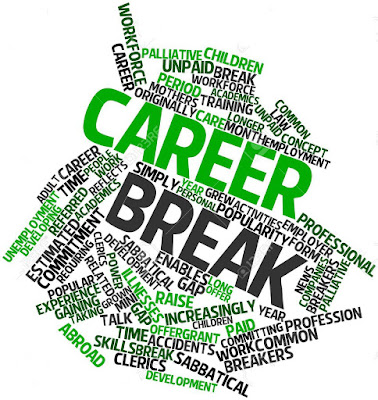 |
| Motherhood Can Take a Toll on Women's Career Ambitions |
Article Table of Content
- WHAT THE MOTHERHOOD PENALTY LOOKS LIKE
- COUNTERING THE EFFECTS OF THE MOTHERHOOD PENALTY
- USE CAREER BREAKS WISELY
Being a mother can be extremely rewarding in many ways, but it can have unintended consequences for mothers who want to pursue a career while raising a family. The so-called motherhood penalty may affect women as they attempt to climb up the career ladder on a steady basis. This can have an impact on their ability to build wealth and create a secure financial future.
The penalty for motherhood may not be fair, but it is a reality that many women face. Understanding how this penalty is imposed on mothers - and how it affects their career prospects - is essential for women as they shape their financial plans.
WHAT THE MOTHERHOOD PENALTY LOOKS LIKE
In general, the motherhood penalty assumes that mothers are not able to maintain the same professional status as women who do not have children or their male counterparts. This can happen on the job in a number of ways, but perhaps the biggest sting is how it affects a woman's earning potential.
According to a report from Third Way, a national think tank, a typical mother sees a 4 percent drop in her earnings for every child she has. Interestingly, the opposite is true of men. Upon becoming a father, men see their income rise by 6%. This inverse relationship suggests that employers may still largely view men and women in traditional roles, with women as carers and men as breadwinners.
Alternatively, the decrease in earnings experienced by mothers may be the result of taking time out of work to raise their children or shifting to a part-time or lower-paid role to make them more available to their families. Women spend a total of 33 hours per week on childcare and housework, compared to just 16 hours for men, according to Pew Research.
The penalty for motherhood can manifest itself in other ways. The 2017 Women in the Workplace study found that 39% of women believed that their gender would make it more difficult to raise, promote, or generally move forward at work. It can be even more difficult for women to make progress when they are mothers. Employers may question the ability of a mother to fulfill the requirements of her professional role. As a result, they do not offer opportunities for advancement, and the result is that many mothers are professionally on the plateau.
The motherhood penalty also applies to women who return to work after hiatus to take care of children. A study published in the American Sociological Review found that stay-at-home moms are half as likely to land a job interview as mothers who have been laid off from their previous job.
 |
| Motherhood Can Take a Toll on Women's Career Ambitions |
COUNTERING THE EFFECTS OF THE MOTHERHOOD PENALTY
The penalty for motherhood can not be eliminated overnight. Despite changes in gender equality at work, many women will continue to face their effects. For those considering motherhood, it is wise to have a sound plan in place to ensure financial health. Your retirement outlook should be the centerpiece of that plan.
Earning less means that you may have less income to save for your later years. In this scenario, women need to take full advantage of opportunities to increase their savings. This includes saving enough in your employer's 401(k) or similar tax-advantaged plan to qualify for the full matching contribution. Adjusting your contributions by 1% annually is a way to step up your savings rate gradually so that it increases in tandem with your income.
If your employer offers a high-deductible health plan, the Health Savings Account is another way to save on a tax-advantaged basis. These accounts provide a triple tax benefit: tax-deductible contributions, tax-deferred growth, and tax-free withdrawals for qualified medical expenses.
What many do not know, however, is that after age 65, you can withdraw HSA funds for any reason, without a penalty. All you have to do is pay regular income tax on the withdrawal. In a pinch, HSA could be used as a retirement savings supplement, a plus for mothers who have not fully achieved their retirement goals.
Tip:💡 Candidate You are allowed to roll over your HSA balance each year and to earn tax-free interest on the growing balance.
In the case of married mothers who are temporarily leaving work, the IRA marriage may be another way of saving. With a spousal IRA, your spouse may make an IRA contribution on your behalf, even if you do not have an income of your own. The contribution limits are the same as traditional and Roth IRAs: $6,000 for 2019, plus an additional catch-up contribution if you are 50 or older.
USE CAREER BREAKS WISELY
If you spend time out of the workforce to raise children, it may be more difficult to get back on the job market after an extended break. That's why it's important to make the most of the time you 're at home.
Stay up-to-date with the latest trends in your industry and consider expanding your skill set during this time. Update your CV while addressing any gaps in your knowledge base. Remember to keep in touch with the members of your network, while also forging new professional connections.
Most importantly, get crystal clear about your vision to get back to work. Setting your expectations for what you want to achieve professionally and as a mother can help you maintain a balance between work and home. Despite the challenges, many women find ways to do just that.



